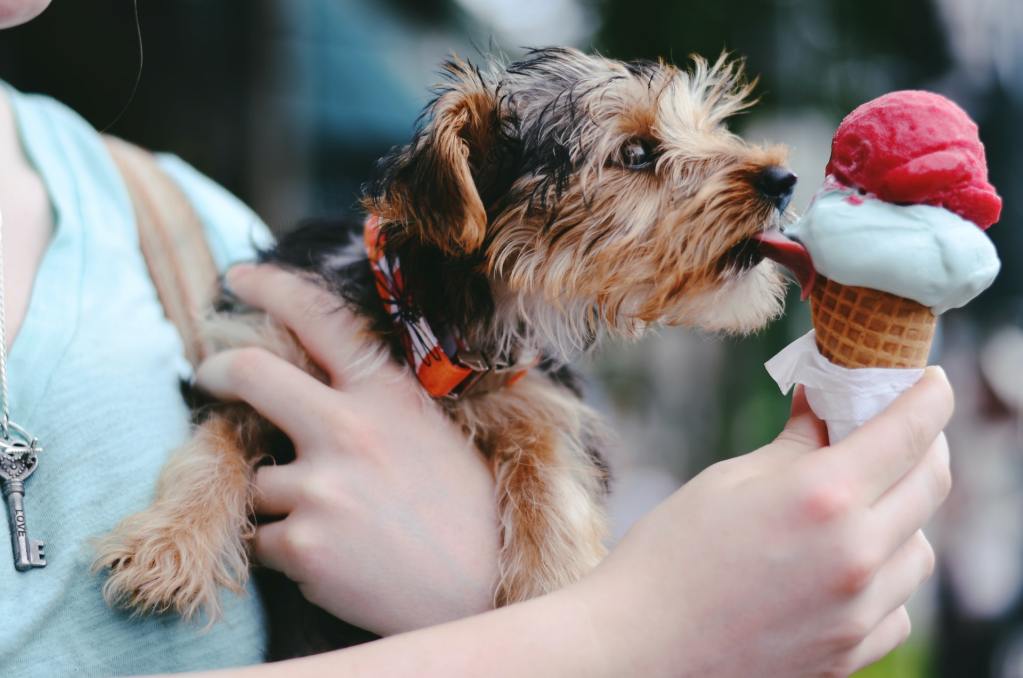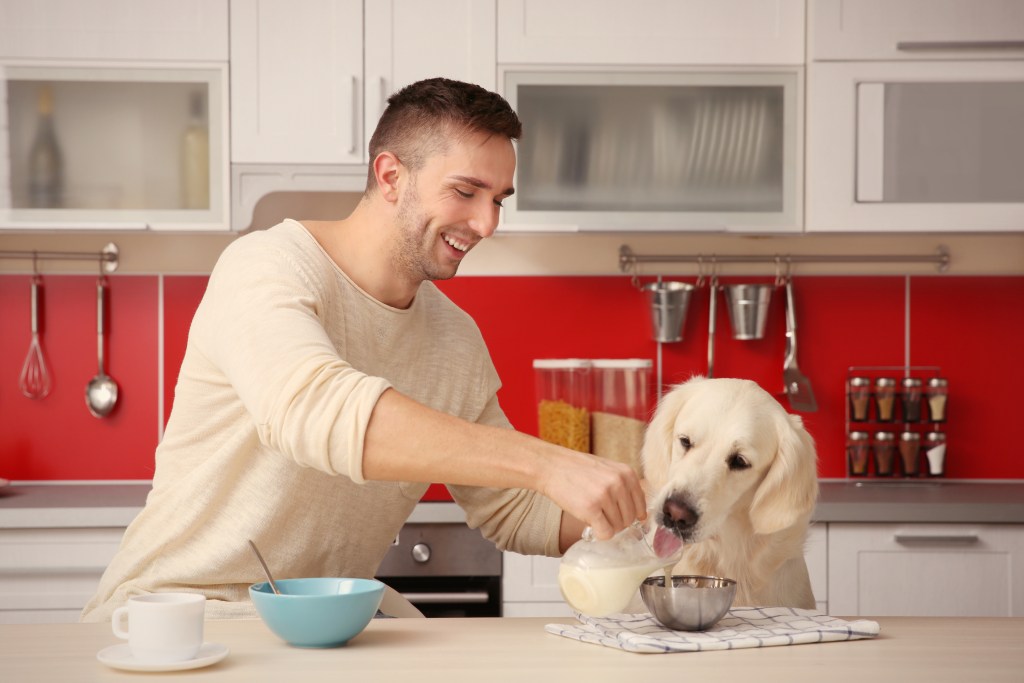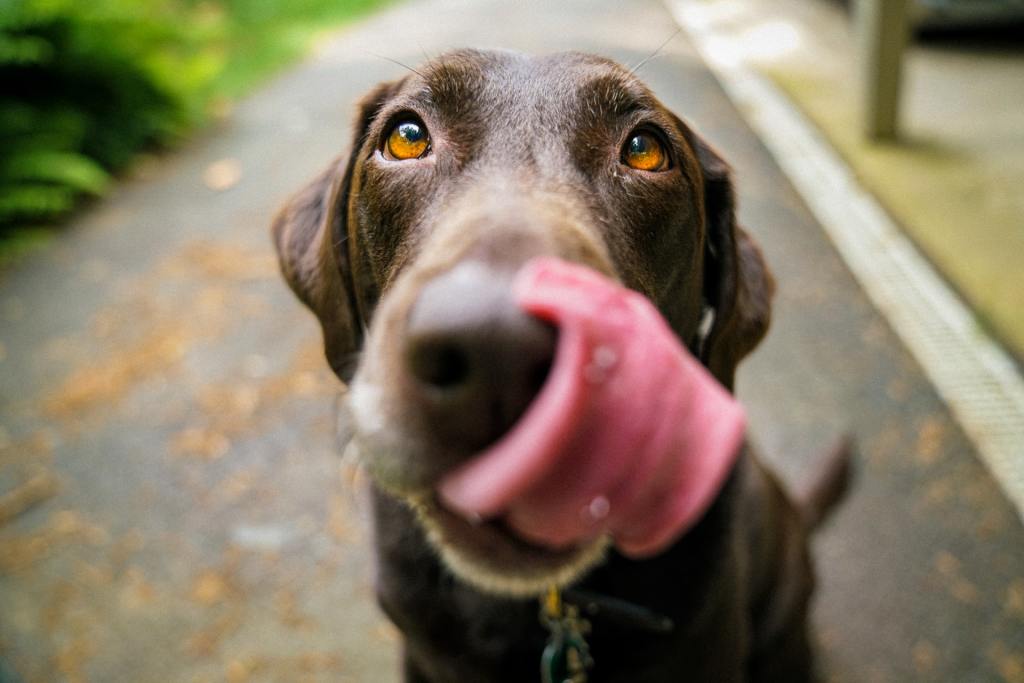If you’ve ever shared an ice cream cone or yogurt cup with your favorite canine, you’re not alone. Our dogs love us unconditionally, but the act of sharing food between a human and a canine companion adds a lot to the bonding process.
Of course, just because your dog likes eating the same thing you do doesn’t mean he should. Obesity, a common problem among domesticated dogs, can lead to serious health problems like diabetes, heart disease, and orthopedic issues. And some food is downright toxic. Chocolate, avocado, and grapes are on a list of foods that can cause everything from gastrointestinal problems to death.
So, what about milk and dairy products, like yogurt and ice cream? Are they safe for dogs to eat? That depends.

Dogs and dairy
Puppies produce a special enzyme called lactase when they are nursing, which is necessary for them to digest the lactose sugar they receive from their mother’s milk. They stop producing as much of this enzyme once they are weaned, making it more difficult for them to digest lactose in the cow or goat milk that we buy at the grocery store.
Plus, milk has high concentrations of fat, as well as carbohydrates that break down into sugar. In addition to obesity, consuming too much of these components can lead to pancreatitis — swelling and inflammation of the pancreas — which interferes with your dog’s ability to digest food and regulate blood sugar. Although milk is also full of protein, calcium, and vitamins A, D, and B12, it’s much healthier for your dog to get these nutrients from nondairy sources.

Is it harmful for my dog to drink milk?
Possibly. Once your puppy is weaned and is no longer producing as much lactase, he may actually become lactose intolerant, meaning his body can’t digest the sugar in lactose. Symptoms of lactose intolerance include:
- Diarrhea
- Vomiting
- Bloating
- Gas
Another common problem with dogs is dairy allergies. Dogs with this condition are sensitive to the proteins found in dairy. Symptoms include those experienced by lactose-intolerant dogs as well as potentially more serious issues like itchiness, redness of the skin, hives, swelling of the face, and difficulty breathing.
In either case, the best way to tell if your dog has these sensitivities is to introduce dairy to him in small quantities first and watch him carefully. If he exhibits any symptoms of lactose intolerance or a dairy allergy, find an alternate snack for him to enjoy.
How much milk is appropriate?
Does all this mean you can’t treat your dog to milk or other dairy products from time to time? Not at all. As long as your dog isn’t lactose intolerant or doesn’t have a dairy allergy, allowing him to lick the remaining contents of your yogurt container once you’ve finished or take the last bite of your ice cream cone isn’t completely out of the question.
Of course, moderation is key. Snacks should only compose no more than 10% of your dog’s total daily caloric intake, so be mindful of the calories. A ½-cup serving of vanilla ice cream can contain 137 calories, and one slice of cheddar cheese is 113 calories. Check with your veterinarian to see how many calories are appropriate for your dog’s size, age, and weight before you allow him to indulge.

Healthy snack alternatives
If your goal is to feed your dog nutritious snacks, consider these healthy alternatives to dairy:
- Peanut butter is high in protein, healthy fats, niacin, and vitamins B and E. When possible, choose unsalted varieties without added sugar. Also, make sure the brand doesn’t use xylitol.
- Carrots are a sweet treat with a tasty crunch. They are also packed with vitamins and minerals, such as beta-carotene, vitamin K, and potassium.
- Apple slices are a good source of fiber along with vitamins A and C. As an added bonus, they make your dog’s breath smell better. Remember to remove the seeds and core before sharing.
As a reminder, always check with your veterinarian before changing your dog’s diet. Her advice will be based on your dog’s age, weight, and size, along with any health concerns related to your dog’s breed and the climate you live in. Together, the two of you can determine which food is the healthiest for your pet, regardless of whether it contains dairy.


